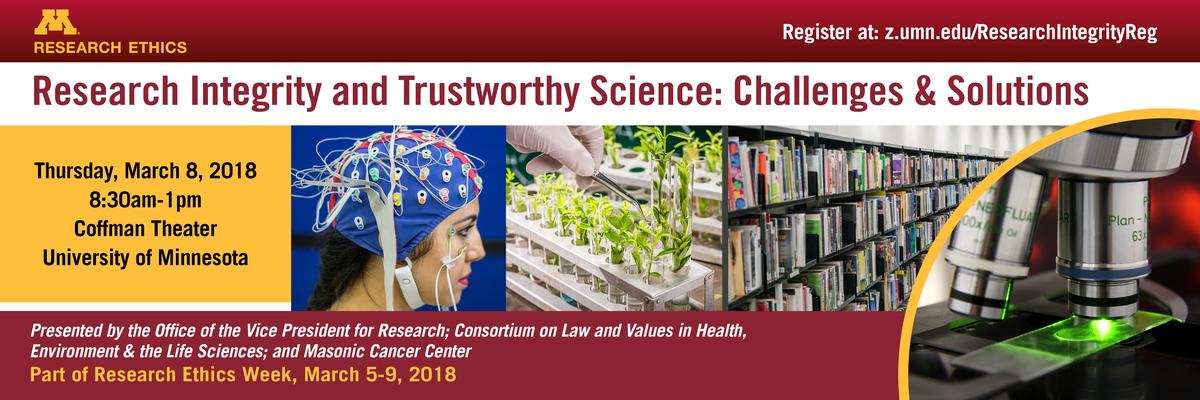
Read a symposium based on this conference on the Petrie-Flom Center's Bill of Health blog. It features short articles by plenary speakers John P.A. Ioannidis, Barbara A. Spellman, and C.K. Gunsalus.
Scientific research is fundamental to progress, sparking new discoveries, improved health care, and technological innovation. However, research misconduct such as data fabrication, detrimental research practices including selective data reporting, predatory journals that fail to perform meaningful peer review, and concerns about the reproducibility of scientific findings all threaten to undermine public trust. This conference brought together leading thinkers from multiple disciplines – biomedicine, the social sciences, law, ethics, and others – to analyze the challenges for researchers, universities, journals, and the community and map a way forward.This conference was part of Research Ethics Week (March 5-9, 2018), during which the University of Minnesota focused on professional development and best practices to ensure safety and integrity in research.
Agenda
8:30am
Welcome
(moderator: Susan M. Wolf, JD, McKnight Presidential Professor of Law, Medicine & Public Policy; Faegre Baker Daniels Professor of Law; Professor of Medicine; Chair, Consortium on Law and Values in Health, Environment & the Life Sciences, University of Minnesota)
• Allen S. Levine, PhD, Vice President for Research; Professor, Department of Food Science and Nutrition, University of Minnesota
8:45am
Challenges for Investigators – Generating Reproducible Research Results
(moderator: Jakub Tolar, MD, PhD, Dean, Medical School; Interim Vice President for Health Sciences; Distinguished McKnight Professor of Pediatrics; Edmund Wallace Tulloch and Anna Marie Tulloch Chair of Stem Cell Biology, Genetics and Genomics, University of Minnesota)
• John P. A. Ioannidis, MD, DSc, C.F. Rehnborg Chair in Disease Prevention, Professor of Medicine, Professor of Health Research and Policy, Professor (by courtesy) of Biomedical Data Science in the School of Medicine; Professor of Statistics (by courtesy) in the School of Humanities and Sciences; co-Director, Meta-Research Innovation Center, Stanford University ![]() View slides
View slides
Q/A
9:30am
Challenges for Journals – Encouraging Sound Science
(moderator: Michael J. Sadowsky, PhD, Distinguished McKnight University Professor, Department of Soil, Water, and Climate; Director, BioTechnology Institute, University of Minnesota; Editor-in-Chief, Microbiology Spectrum)
• Barbara A. Spellman, JD, PhD, Professor of Law, Professor of Psychology, University of Virginia; TOP (Transparency and Openness Promotion) Coordinating Committee Chair, Center for Open Science; former Editor-in-Chief Perspectives on Psychological Science View slides
Q/A
10:15am
Challenges for Institutions and the Public – Advancing Research Integrity
(moderator: Susan M. Wolf, JD, McKnight Presidential Professor of Law, Medicine & Public Policy; Faegre Baker Daniels Professor of Law; Professor of Medicine; Chair, Consortium on Law and Values in Health, Environment & the Life Sciences, University of Minnesota)
• C.K. Gunsalus, JD, Director, National Center for Professional and Research Ethics (NCPRE); Professor Emerita of Business, Research Professor at the Coordinated Sciences Laboratory, University of Illinois; Member, National Academies committee producing report on Fostering Integrity in Research (2017)
Q/A
11:00am
Break (with distribution of box lunches)
11:15am
Panel Discussion
(moderator: Douglas Yee, MD, Director, Masonic Cancer Center; John H. Kersey Chair in Cancer Research; Professor, Medicine and Pharmacology, University of Minnesota)
• Melissa S. Anderson, PhD, Professor of Higher Education; Director of Graduate Studies, Department of Organizational Leadership, Policy, and Development, University of Minnesota
• Stella Whitney-West, MBA, Chief Executive Officer, NorthPoint Health & Wellness Center; Member, Community Oversight Board, Human Research Protection Program (HRPP), University of Minnesota
• Rolf Weberg, PhD, Executive Director, Natural Resources Research Institute; Professor, Swenson College of Science and Engineering, University of Minnesota Duluth ![]() View slides
View slides
• Leigh Turner, PhD, Associate Professor, Center for Bioethics, Dept. of Pharmaceutical Care & Health Systems, and School of Public Health, University of Minnesota
Plenary speakers will join the panel for Q/A
1pm
Adjourn
Speaker Biographies
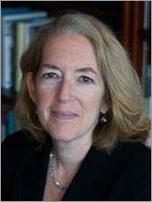
Susan M. Wolf, JD, is chair of the conference planning committee. She is McKnight Presidential Professor of Law, Medicine & Public Policy; Faegre Baker Daniels Professor of Law; and Professor of Medicine at the University of Minnesota. Prof. Wolf is Chair of the Consortium on Law and Values in Health, Environment & the Life Sciences. She is an elected member of the National Academy of Medicine (NAM) and a Fellow of the American Association for the Advancement of Science. Prof. Wolf's research has been supported by the National Institutes of Health (NIH) and National Science Foundation (NSF) as well as private foundations including the Robert Wood Johnson Foundation and The Greenwall Foundation. She is currently a Principal Investigator on a project funded by the National Human Genome Research Institute (NHGRI) and National Cancer Institute (NCI) of the National Institutes of Health, LawSeq: Building a Sound Legal Foundation for Translating Genomics into Clinical Application (1-R01-HG008605). Prof. Wolf is currently a member of the National Academies Committee on Science, Engineering, Medicine and Public Policy, under whose auspices the Committee on Responsible Science issued the 2017 report on “Fostering Integrity in Research.”
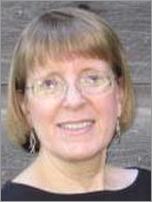
Melissa S. Anderson, PhD, is Professor of Higher Education and Director of Graduate Studies in the Department of Organizational Leadership, Policy, and Development at the University of Minnesota. Her research over the past 30 years has been in the areas of research integrity, scientific misconduct, international research collaboration, and academy-industry relations, with particular attention to the research environment. She was Principal Investigator of a study funded by the National Institutes of Health on integrity in international research collaborations and co-editor, with Nicholas Steneck, of International Research Collaborations: Much to be Gained, Many Ways to Get in Trouble (Routledge, 2010). Prof. Anderson chairs the Committee on Scientific Freedom and Responsibility of the American Association for the Advancement of Science, and serves on the editorial boards of Science and Engineering Ethics, The Journal of Empirical Research on Human Research Ethics, Research Integrity and Peer Review, The International Journal for Research Integrity, and Accountability in Research. She served for five years as co-chair (with Sabine Kleinert, Senior Executive Editor of The Lancet) of the World Conferences on Research Integrity, and currently sits on the Executive Board of the World Conference on Research Integrity Foundation.

C. K. Gunsalus, JD, is the Director of the National Center for Professional and Research Ethics (NCPRE), Professor Emerita of Business, and Research Professor at the Coordinated Sciences Laboratory. Gunsalus was the Principal Investigator (PI) for the centerpiece project of NCPRE, a national online ethics resource named Ethics CORE, which was initiated with $1.5M from the National Science Foundation. At the University of Illinois at Urbana-Champaign, she has been on the faculty of the colleges of Business, Law, and Medicine and served as Special Counsel in the Office of University Counsel. In the College of Business, Prof. Gunsalus taught leadership and ethics in the MBA program and was the director of the required Professional Responsibility course for all undergraduates in the college. She was a member of the faculty of the Medical Humanities/Social Sciences program in the College of Medicine, where she taught communication, conflict resolution skills and ethics. In 2013, Prof. Gunsalus was selected as one of 15 for the long list (finalists) for the Economist Intelligence Unit’s Best Business Professor of the Year Award. She was a member of the Committee on Responsible Science, which issued the National Academies report on “Fostering Integrity in Research.”
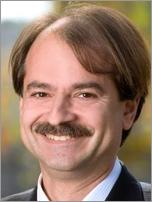
John P.A. Ioannidis, MD, DSc, is C.F. Rehnborg Chair in Disease Prevention, Professor of Medicine, Professor of Health Research and Policy, Professor (by courtesy) of Biomedical Data Science, Professor (by courtesy) of Statistics, co-Director of the Meta-Research Innovation Center, and Director of the PhD program in Epidemiology and Clinical Research at Stanford University. He has served as President of the Society for Research Synthesis Methodology, and as an editorial Board Member of many leading journals, including PLoS Medicine, The Lancet, Annals of Internal Medicine, JNCI, Science Translational Medicine, Clinical Chemistry, Molecular and Cellular Proteomics, AIDS, International Journal of Epidemiology, Journal of Clinical Epidemiology, Clinical Trials, and PLoS ONE, among others, and as Editor-in-Chief of the European Journal of Clinical Investigation (2010-present). His 2005 PLoS Medicine paper, “Why Most Published Research Findings are False,” has been the most-accessed article in the history of the Public Library of Science.
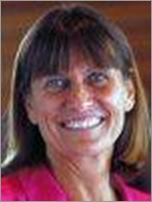
Frances Lawrenz, PhD, is Professor of Educational Psychology and Associate Vice President for Research at the University of Minnesota. Her research focuses on science and mathematics program evaluation, utilizing a variety of techniques and usually involving mixed methodologies. Along with her teaching duties, Prof. Lawrenz is currently involved in the evaluation of several national science and mathematics programs. She has been recognized by the American Educational Research Association, having been awarded the 2016 Research on Evaluation SIG Distinguished Scholar Award for outstanding contributions to advance research in the field of evaluation, and by the National Association for Research in Science Teaching, with the Distinguished Contributions to Science Education through Research Award for outstanding contributions to science education in 2014. She is currently a Principal Investigator on a project funded by the National Human Genome Research Institute (NHGRI) and National Cancer Institute (NCI) of the National Institutes of Health, LawSeq: Building a Sound Legal Foundation for Translating Genomics into Clinical Application (1-R01-HG008605).
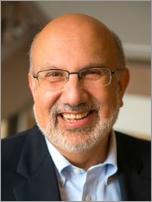
Allen S. Levine, PhD, is Vice President for Research and Professor of Food Science and Nutrition at the University of Minnesota. Prior to his current position he was Vice Provost for Faculty and Academic Affairs; Dean of the College of Food, Agricultural and Natural Resource Sciences; and Head of the Department of Food Science and Nutrition. He was the Associate Director of Research and a Senior Career Scientist at the Minneapolis VA Medical Center for 26 years. He also founded the NIDDK-funded Minnesota Obesity Center and was its director for 20 years.
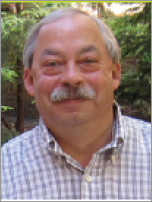
Michael Sadowsky, PhD, is Director of the BioTechnology Institute; Professor in the BioTechnology Institute and Department of Soil, Water & Climate; and serves on the faculty of 10 Graduate Programs, all at the University of Minnesota. Prof. Sadowsky is a fellow in the prestigious American Academy of Microbiology, and the American Association for the Advancement of Science. He is internationally known and respected for his research work in the area of fecal microbiota transplantation and environmental microbiology, and is currently Editor-in-Chief of Microbiology Spectrum.
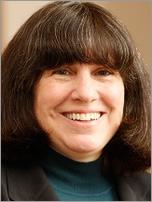
Barbara A. Spellman, JD, PhD, is Professor of Law and Professor of Psychology at the University of Virginia. Her teaching and research is at the intersection of cognitive and social psychology and the law. From 2011-15, she served as Editor-in-Chief of Perspectives on Psychological Science, a theory and review journal, which published over 100 articles on the replication crisis and scientific reform. She is currently Chair of the TOP (Transparency and Openness Promotion) Coordinating Committee, which designs and promotes good publication practices and is part of the Center for Open Science.
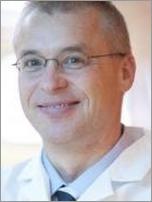
Jakub Tolar, MD, PhD, is Dean of the Medical School; Interim Vice President for Health Sciences; McKnight Professor of Pediatrics; Edmund Wallace Tulloch and Anna Marie Tulloch Chair in Stem Cell Biology, Genetics and Genomics; and Director of the University of Minnesota Stem Cell Institute. Prof. Tolar's research focuses on using hematopoietic stem cell transplant as a treatment for rare genetic disorders including Hurler syndrome and dyskeratosis congenital, and has achieved international recognition for his work in caring for patients with recessive dystrophic epidermolysis bullosa.
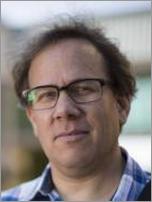
Leigh Turner, PhD, is an Associate Professor at the University of Minnesota Center for Bioethics, School of Public Health, and College of Pharmacy. With co-editors Jill Hodges and Ann Marie Kimball, Turner edited Risks and Challenges in Medical Tourism: Understanding the Global Market for Health Services (Praeger, 2012). With Raymond De Vries, Kristina Orfali, and Charles Bosk, Turner edited The View from Here: Bioethics and the Social Sciences (Wiley-Blackwell, 2007). Turner’s research addresses ethical, legal, and regulatory issues associated with clinics engaged in direct-to-consumer marketing of unproven and unlicensed cell-based interventions. Turner is also the author of numerous publications examining ethical issues related transnational medical travel (also known as “medical tourism”) and globalization of health care.
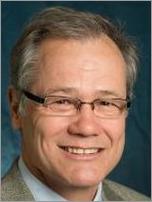
Rolf Weberg, PhD, is Executive Director of the Natural Resources Research Institute (NRRI) at the University of Minnesota Duluth. In that position, he's responsible for overall management of the applied research institute and its three centers: Applied Research and Technology Development, Water and the Environment, and the Center for Economic Development. He is also on the faculty of the Swenson College of Science and Engineering, University of Minnesota Duluth. Prior to coming to UMN-Duluth, Prof. Weberg had a 25-year industrial career, during which he worked in the research and development division of the DuPont Company. He left DuPont in 2014 as the Global Technology Manager for DuPont’s Building Innovations Business–Surfaces Division.
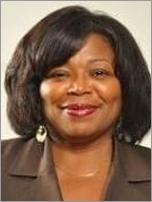
Stella Whitney-West, MBA, is Chief Executive Officer of NorthPoint Health & Wellness Center, a federally qualified health center that serves over 25,000 residents in North Minneapolis and Hennepin County with comprehensive medical, dental, and behavioral health care. Prior to her appointment, she served as the COO for NorthPoint’s Human Services. Her background includes over two decades of experience working with governance and policy boards of nonprofit organizations as well as extensive senior management experience in the Twin Cities nonprofit community. She has an MBA from the University of St. Thomas and a BS in biology from the University of Minnesota. Ms. Whitney-West serves on the Community Oversight Board of the Human Research Protection Program (HRPP) at the University of Minnesota.
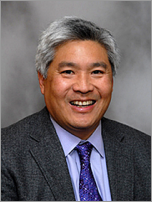
Douglas Yee, MD, is Director of the Masonic Cancer Center, Professor of Medicine and Pharmacology, and John H. Kersey Chair in Cancer Research at the University of Minnesota. As Director of the Cancer Center, he serves as the point person for all cancer research at the University. He also treats patients with breast cancer and conducts research to improve cancer therapies.
Planning Committee

Susan M. Wolf, JD, is Chair of the conference planning committee. She is McKnight Presidential Professor of Law, Medicine & Public Policy; Faegre Baker Daniels Professor of Law; and Professor of Medicine at the University of Minnesota. Prof. Wolf is Chair of the Consortium on Law and Values in Health, Environment & the Life Sciences. She is an elected member of the National Academy of Medicine (NAM) and a Fellow of the American Association for the Advancement of Science. Prof. Wolf's research has been supported by the National Institutes of Health (NIH) and National Science Foundation (NSF) as well as private foundations including the Robert Wood Johnson Foundation and The Greenwall Foundation.
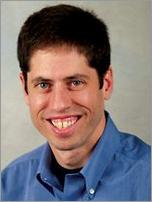
William Arnold, PhD, is Distinguished McKnight University Professor, Joseph T. and Rose S. Ling Professor, and Associate Department Head in the Department of Civil, Environmental, and Geo-Engineering at the University of Minnesota. His research focuses on water pollutants, and seeks to understand how organic pollutants (like industrial solvents, pesticides, and pharmaceuticals) behave in natural systems (such as lakes and rivers) and engineered systems (like drinking water pipes and wastewater treatment technologies).
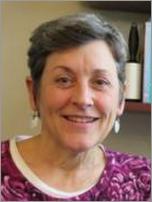
Kathleen Thiede Call, PhD, is a Professor of Health Policy and Management in the School of Public Health. She received the University of Minnesota President's Community-Engaged Scholar Award and is Faculty Liaison for the Clinical and Translational Science Institute. Prof. Call's research interests include disparities in access to health insurance and developing community-engaged research projects focusing on equitable access to health care.
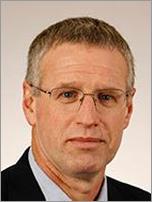
Gregory Cuomo, PhD, is Associate Dean for Research and Graduate Programs in the University of Minnesota's College of Food, Agriculture and Natural Resource Sciences (CFANS). He is a Professor in the Department of Agronomy and Plant Genetics; Deputy Director of the Minnesota Agricultural Experiment Station (MAES); and Division Head of CFAN's 10 outstate research and outreach centers.
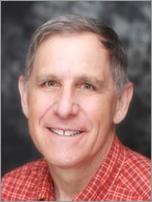
Milton "Mickey" Eder, PhD, is Chair of the Biomedical Review Board at the University of Minnesota. He joined the University of Minnesota Department of Family Medicine and Community Health research faculty in 2014. He conducts translational research and focuses on transforming the public's relationship to research, engaging communities in all aspects of research, and improving health outcomes. Eder is also interested in practice-based research to improve patient safety within primary care. Additionally, he is the Associate Director of the U of M Clinical and Translational Science Institute's (CTSI) Office of Community Engagement to Advance Research and Community Health. Previously, he served as the Director of research and evaluation programs at Access Community Health Network in Chicago for 10 years. At this network of federally qualified health centers, he organized and initiated research involving patient safety, health literacy, and health disparities, with the goal of improving individual and community health outcomes.
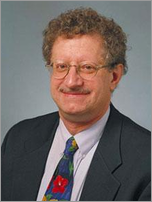
Gary Gardner, PhD, is Professor of Horticultural Science at the University of Minnesota. Prof. Gardner is a member of the graduate faculties in Plant Biological Sciences and Applied Plant Sciences; the Advisory Board of the Healthy Foods, Healthy Lives Institute; and the Executive Committee of the Consortium on Law and Values in Health, Environment & the Life Sciences.
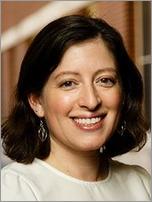
Sarah Gollust, PhD, is an Associate Professor of Health Policy & Management the School of Public Health at the University of Minnesota. Prof. Gollust conducts research on the influence of communication in health policy and the factors that shape public opinion and the policymaking process. Areas of research and teaching interest include health disparities, policies to prevent childhood obesity, cancer screening, and ethical issues in public health practice and policy.
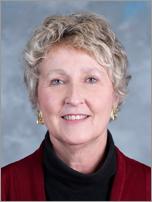
Megan Gunnar, PhD, is Regents Professor; Distinguished McKnight University Professor; Director (Department Chair) of the Institute of Child Development; and Associate Director, Center for Neurobehavioral Development, all the University of Minnesota. Her research focuses on how children and adolescents regulate stress physiology and emotions and the impact of early life stress on brain and behavioral development.

Frances Lawrenz, PhD, is Professor of Educational Psychology and Associate Vice President for Research at the University of Minnesota. Her research focuses on science and mathematics program evaluation, utilizing a variety of techniques and usually involving mixed methodologies. She was recognized by the American Educational Research Association, receiving the 2016 Research on Evaluation SIG Distinguished Scholar Award and by the National Association for Research in Science Teaching, with the Distinguished Contributions to Science Education through Research Award in 2014.
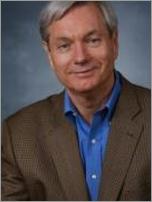
Michael T. Osterholm, PhD, MPH, is Regents Professor; McKnight Presidential Endowed Chair in Public Health; the Director of the Center for Infectious Disease Research and Policy (CIDRAP); and Distinguished Teaching Professor in the Division of Environmental Health Sciences, School of Public Health at the University of Minnesota. He is also a Professor in the Technological Leadership Institute, College of Science and Engineering, and an Adjunct Professor in the Medical School. He is a member of the National Academy of Medicine (NAM) and the Council on Foreign Relations. He has served as a high-level advisor on issues related to bioterrorism, public health preparedness, and infectious diseases.

Michael Sadowsky, PhD, is Director of the BioTechnology Institute; Professor in the BioTechnology Institute and Department of Soil, Water & Climate; and serves on the faculty of 10 Graduate Programs, all at the University of Minnesota. Prof. Sadowsky is a fellow in the prestigious American Academy of Microbiology, and the American Association for the Advancement of Science. He is internationally known and respected for his research work in the area of fecal microbiota transplantation and environmental microbiology.

Jakub Tolar, MD, PhD, is Dean of the Medical School; Interim Vice President for Health Sciences; McKnight Professor of Pediatrics; Edmund Wallace Tulloch and Anna Marie Tulloch Chair in Stem Cell Biology, Genetics and Genomics; and Director of the University of Minnesota Stem Cell Institute. Prof. Tolar's research focuses on using hematopoietic stem cell transplant as a treatment for rare genetic disorders including Hurler syndrome and dyskeratosis congenital, and has achieved international recognition for his work in caring for patients with recessive dystrophic epidermolysis bullosa.
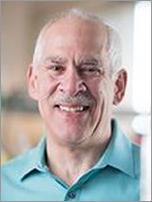
Robert Tranquillo, PhD, is a Distinguished McKnight University Professor and Head of the Department of Biomedical Engineering at the University of Minnesota. His research is focused on cardiovascular tissue engineering; he led the team that developed the use of the "tissue-equivalent" as a replacement for a diseased or damaged small diameter arteries, heart valves, and myocardia. This therapy has the potential to revolutionize the care and treatment of patients with heart defects, by growing tissue that could replace a faulty valve, heal itself, and grow with the patient.
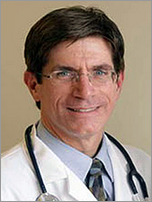
John E. Wagner, Jr., MD, is McKnight Presidential Chair in Childhood Cancer Research; Children's Cancer Research Fund/Hageboeck Family Endowed Chair in Pediatric Oncology; Professor and Director of Blood and Marrow Transplantation in the Department of Pediatrics; Scientific Director of Clinical Research at the Stem Cell Institute; and Co-Director of the Center for Translational Medicine at the University of Minnesota. Prof. Wagner has led the University of Minnesota's Cord Blood Transplantation Program in the treatment of adults and children and is responsible for its international prominence, having first pioneered its use in 1990 in leukemia.
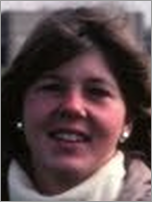
Sarah Waldemar oversees the Research Compliance Office, an independent unit that helps ensure that University of Minnesota research complies with relevant laws, rules, policies, and guidelines. She has served the University for more than 37 years, including as Director of Research Education and Oversight; Head of the Office of Oversight, Analysis, and Reporting; and Administrative Director of the Division of Environmental Health Sciences in the School of Public Health. She has coordinated multi-center clinical trials and been a leader in the University’s risk recalibration activities. She holds a B.A. from the University of Minnesota and is a graduate of Minnesota Partnership for Executive Leadership Development.

Douglas Yee, MD, is Director of the Masonic Cancer Center, Professor of Medicine and Pharmacology, and John H. Kersey Chair in Cancer Research at the University of Minnesota. As Director of the Cancer Center, he serves as the point person for all cancer research at the University. He also treats patients with breast cancer and conducts research to improve cancer therapies.
Resources
- Report: Fostering Integrity in Research, National Academies of Sciences, Engineering and Medicine (2017)
- Article: Institutional Research Misconduct Reports Need More Credibility, C.K. Gunsalus, Adam R. Marcus and Ivan Oransky (March 12, 2018)
- Article: Why Most Published Research Findings are False, John P.A. Ioannidis, PLoS Medicine (Aug. 30, 2005)
- Article: Promoting an Open Research Culture, B. A. Nosek et al., Science Magazine (June 26, 2015)
- Article: A Short (Personal) Future History of Revolution 2.0, Barbara A. Spellman, Perspectives on Psychological Science (Nov. 17, 2015)
- Article: Preventing the Need for Whistleblowing: Practical Advice for University Administrators, C.K. Gunsalus (Nov. 8, 1997)
- Article: Misconduct Expert Dissects Duke Scandal, C.K. Gunsalus (Jan. 23, 2015)
- Article: Selling Stem Cells in the USA: Assessing the Direct-to-Consumer Industry, Leigh Turner (Cell Stem Cell, June 30, 2016)
Credit Designation Statements
American Medical Association (AMA)
The University of Minnesota, Interprofessional Continuing Education designates this live activity for a maximum of 4.25 AMA PRA Category 1 Credits™. Physicians should claim only the credit commensurate with the extent of their participation in the activity.
Other Healthcare Professionals
Other healthcare professionals who participate in this CE activity may submit their statement of participation to their appropriate accrediting organizations or state boards for consideration of credit. The participant is responsible for determining whether this activity meets the requirements for acceptable continuing education.
Attorneys: The Minnesota State Board of Continuing Legal Education has approved 4.25 Continuing Legal Education (CLE) credits; Event Code is #250644.